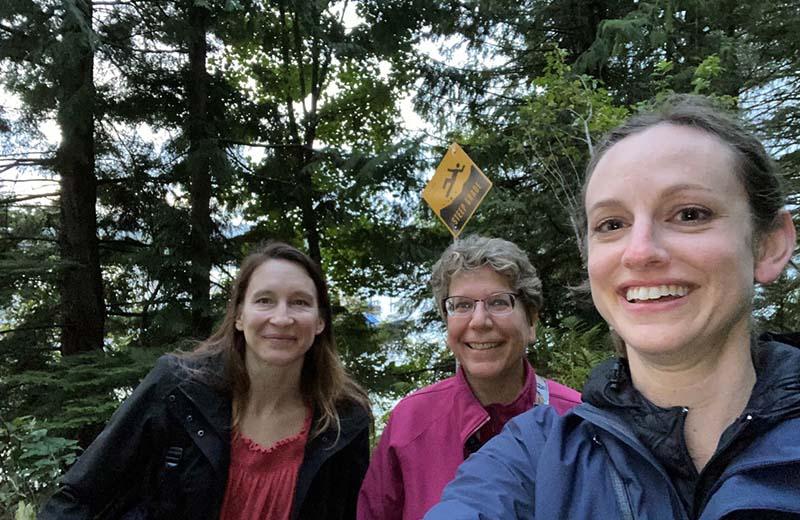October 14 was International Allied Health Professions Day! This was the first time for BC to formally recognize the broad range of professions that make up the allied health workforce and the critical role they play in our health system. Take a look at the other story we shared to celebrate some allied health professions in our region! Here’s another look at the role that allied health professions play in supporting patients in the North.
Speech language pathologists, occupational therapists, and registered dietitians work collaboratively as members of the Regional Dysphagia Management Team (RDMT) to build capacity, knowledge, and supports for health care teams and therapists across the region who support the complex health care needs of seniors.
Initially, the team focused on improving the mealtime experience for residents in long-term care, especially for those with eating, drinking and swallowing disorders. Over time, their efforts expanded to support teams with many of the complex care needs of seniors. To further expand on the work of this team, we interviewed Judy April, a registered dietitian, and Sasha Wade, a speech language pathologist.
Judy April
What made you want to do your current job? Having worked as a frontline practitioner for over 20 years, I was looking for a new challenge and an opportunity to develop my education/mentorship skills. It’s very fulfilling to have time to develop resources I know will be useful to practitioners and to use my experience to mentor new dietitians. I also value contributing to the dialogue within the leadership structure of the organization.
What does your role involve? My role is closely linked to that of my occupational therapist and speech language pathologist colleagues – it truly is interdisciplinary. We develop resources, provide education, inform and develop clinical practice standards, use quality improvement and change management strategies to support new initiatives, and mentor speech language pathologists, registered dietitians, and occupational therapists, especially new graduates.
What is the best thing about being an allied health professional? Allied health professionals have such a diverse set of skills. I am always learning something new within my profession and from other professionals! I enjoy working alongside other allied health professionals, nurses, nurse practitioners, and physicians, and am always amazed at how shared care planning creates something where “the whole is greater than the sum of the parts.”
Sasha Wade
What made you want to do your current job? I wanted to be a clinical specialist speech language pathologist on this team because of the dynamic, flexible nature of the role. I wanted to work with an interdisciplinary team to bring dysphagia services to rural communities in new ways using technologies such as virtual health. The role allows me to mentor others, grow as a leader, and develop clinical areas I am passionate about.
What does your role involve? Our team helps practitioners navigate complex clinical matters such as communication disorders, cognition, oral care, positioning, nutrition, palliative care, moral distress, ethics, risks, and decision-making. We develop education, clinical practice standards and resources, mentor and network, and from a regional lens, we make recommendations to improve clinical services and practices.
What is the best thing about being an allied health professional? Allied health professionals are lucky to have varied opportunities to specialize in different areas and the freedom to shape roles to fit their interests and passions!
Northern Health wants to thank all our allied health professions for the role they play in taking care of our patients, every day!














Comments